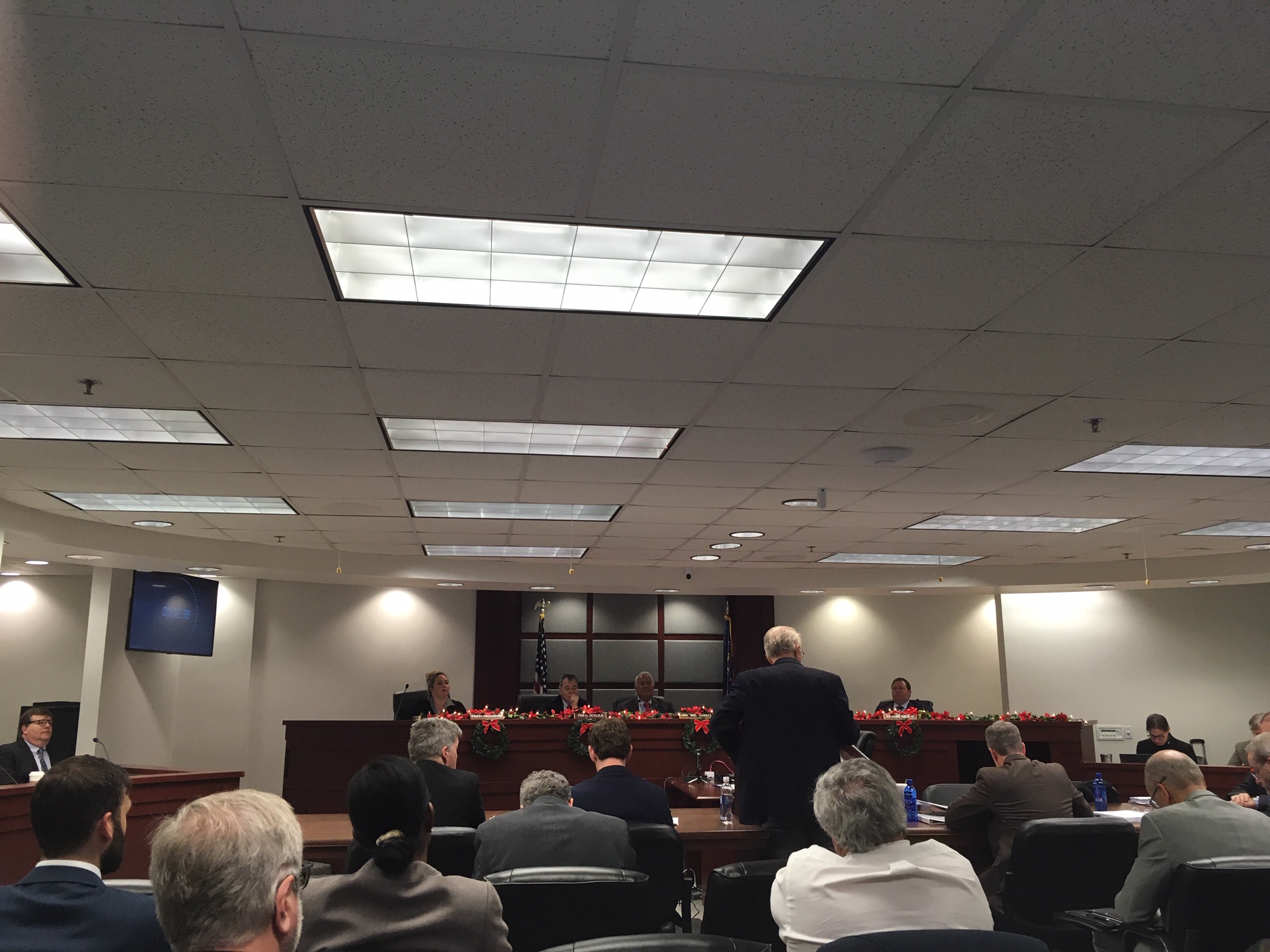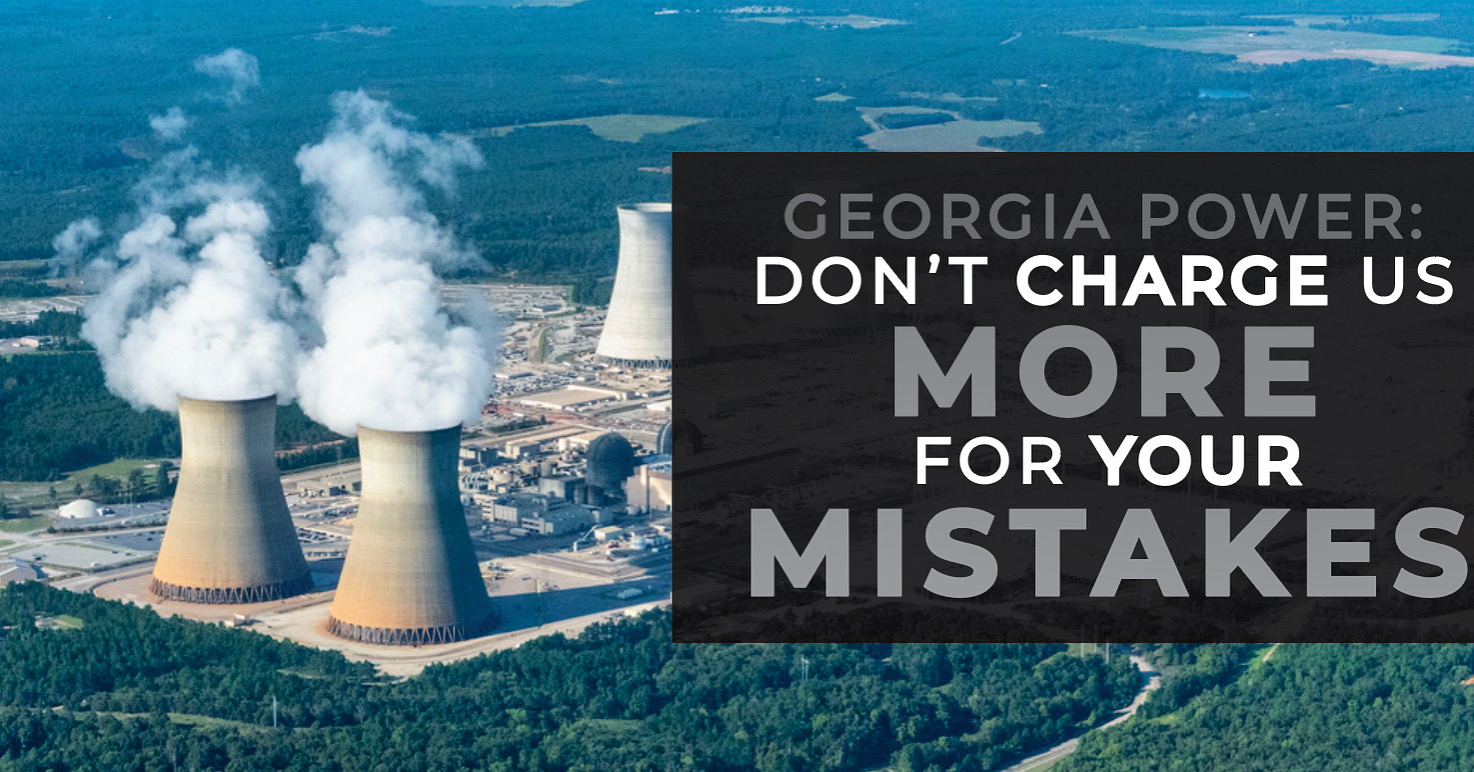Expert testimony at last week’s hearing on the combined 20th/21st semi-annual Vogtle Construction Monitoring (VCM) proceeding before the Georgia Public Service Commission (PSC) pointed to (yet again) more trouble facing Southern Company’s 68+ month delayed, budget-busting nuclear expansion at Plant Vogtle near Waynesboro, Georgia.
Guest Blog | December 30, 2019 | Georgia, NuclearExpert testimony at last week’s hearing on the combined 20th/21st semi-annual Vogtle Construction Monitoring (VCM) proceeding before the Georgia Public Service Commission (PSC) pointed to (yet again) more trouble facing Southern Company’s 68+ month delayed, budget-busting nuclear expansion at Plant Vogtle near Waynesboro, Georgia. Despite being ten years into construction, the PSC expert witnesses and consultants made it clear that it will be extremely challenging for the two Toshiba-Westinghouse AP1000 nuclear reactors to be completed by November 2021 (for Unit 3) and November 2022 (for Unit 4). The economic news isn’t improving either, as the project’s cost, which has already doubled: from ~$14 billion to over $28 billion, could increase even further, even if those dates are met.

In the 2020/21 VCM, Georgia Power is asking for verification and approval of $1.248 billion in expenditures – and that’s just for Georgia Power’s 45.7% share of the costs incurred during the reporting period from July 2018 to June 2019. At the hearing, public commenters spoke out in opposition to the project – voicing concerns over the ever-increasing budget and continued delays – and implored the PSC Commissioners to protect Georgia Power customers.
Take action today by sending a letter to the PSC Commissioners.
Given the Commission’s unfortunate 4-1 vote on December 17 to approve Georgia Power’s 2019 unfair rate hike request, residential customers should be extremely worried about the Commission’s handling of the Plant Vogtle expansion debacle. Watch the December 10, 2019 hearing here: Part 1 & Part 2.
Some Key Takeaways:
- The project (again) isn’t meeting the productivity goals, and appears to be falling further behind schedule – expert Don Grace estimated an additional 3.5 month delay and a possible $1+ billion cost increase (pp. 38-39, Table 10, Grace testimony).
- Peak base rate impact for a typical residential customer will be more than double what Georgia Power told the Commission during the Vogtle Certification docket in 2009 (p. 22, Newsome/Hayet testimony).
- Ten years into construction, the estimate of the Project’s completion is “simply an educated guess” (p. 19, Jacobs/Roetger testimony).
- Vogtle’s current November 2021/2022 delay is costing customers an additional $1.1 billion over what was originally estimated in the Nuclear Construction Cost Recovery Rider (NCCR), which is money collected in advance from Georgia Power customers for financing costs due to state legislation passed in 2009) (p. 6, Newsome/Hayet testimony)
- This will be roughly an additional $385 more for an average residential customer (if the reactors are completed by 2022) – on top of the over $400 that each customer has already paid for the Vogtle nuclear “tax”
- Given the recent approval of Georgia Power’s unfair rate hike by the Georgia PSC Commissioners, low-income residential customers are already being hit too hard — and Plant Vogtle’s bungled construction expansion is only making their situation worse
- See what you’re paying for the Vogtle nuclear “tax” using the online bill calculator.
Let’s also not forget that the PSC experts have predicted every schedule delay and cost increase, well before Georgia Power has admitted to the problems.

Georgia Power customers concerned about their electric bill should let the Commissioners know that not only are they extremely disappointed with the 4-1 approval of the unfair rate hike, but are also very concerned about what happens when the other shoe drops – when Plant Vogtle’s final budget-busting price tag gets rolled into customer’s electricity rates.
Take ActionThis blog post was written by Sara Barczak, SACE consultant, and former Regional Advocacy Director.